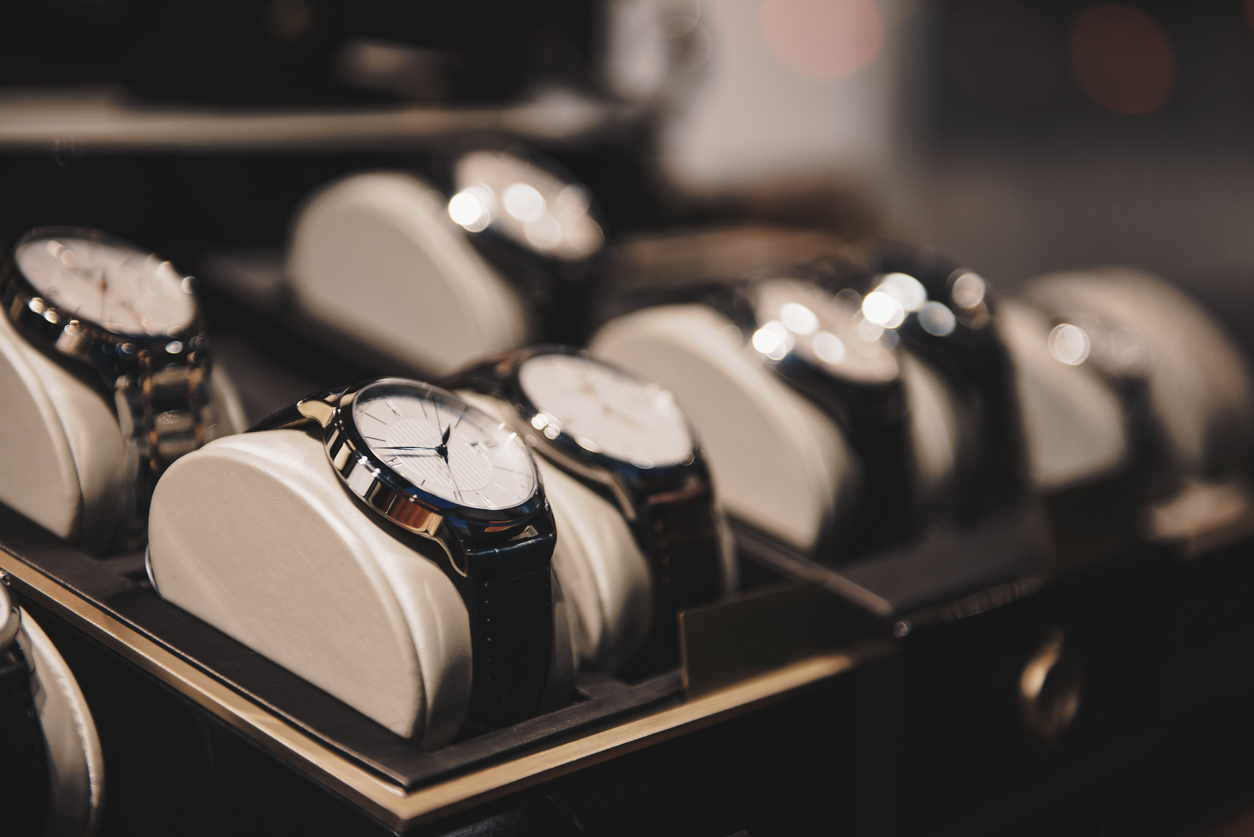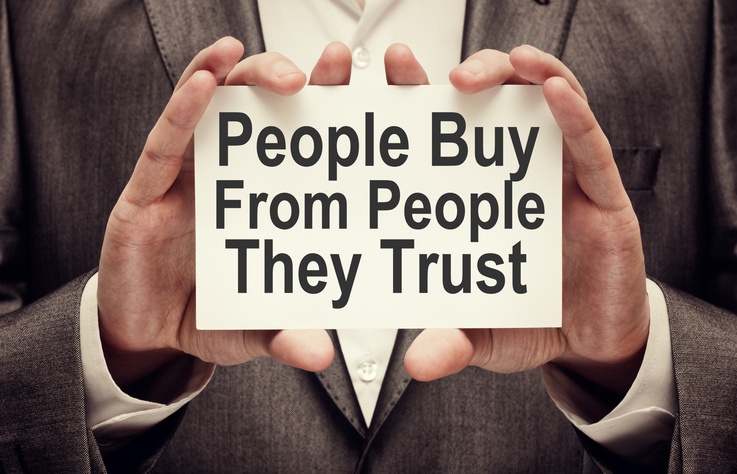A disruptive technology, Blockchain can help luxury retailers to lower their costs. It can do this by recording any sort of data, minimizing paperwork, and speeding up transactions. But, that’s not all. Blockchain also enables the fashion industry to immediately verify the source of materials and where items are produced.
With blockchain technology, managing supply chains becomes much easier and more seamless for luxury retailers. Luxury goods can be easily verified for authenticity and retailers no longer suffer losses, alterations, or destruction of supplier records. Additionally, blockchain reduces the chances of fraud and counterfeiting. Tracking products and preventing counterfeiting are two popular reasons for the adoption of blockchain in the retail industry. In fact, these two reasons are why Alibaba—the Chinese e-commerce giant, is an early adopter of blockchain technology.
The Key Benefits of the Blockchain Technology for the Retail Industry
As of 2017, the value of the global luxury goods market was approximately $1.36 billion. The market includes a variety of items including clothing apparel, old school electronics, jewelry, artwork, and even alcohol dating back a few decades or centuries. While the luxury goods market is doing pretty well in terms of numbers, it needs a trusted, verifiable system for goods that can better track a brand’s Lifecyle or a particular item. Blockchain fits the bill perfectly
Not only will blockchain help prevent many potential counterfeiting issues, it will also ensure more transparent transactions and relationships between buyers and sellers. Following are some of the key benefits of the blockchain technology for the retail industry, which includes luxury retailers.
1. Accuracy
By providing a chronological product story, blockchain allows customers to see data and information from every supply chain point. From example, if a retail outlet was selling branded clothing, then blockchain would provide data that shows where, when and by who the clothing was made, as well as the individual materials used to produce the clothing. This allows fashion retailers to ensure that the clothing they are selling are made of materials that are ethically sourced and are of the desired quality.
A new level of trust is assed to the retailer-customer relationship by this increased transparency between the two parties enabled by blockchain. An Israeli company Wave is already offering retailers and brands blockchain technology that makes it easier for them to track their supply chain.
2. Authenticity
Since it tracks items from the time they are sourced to when they are purchased by the customer, the blockchain technology can solve the authenticity problem for retailers by guaranteeing and confirming to customers that the item they are buying is genuine. Babyghost—a luxury fashion brand, has partnered with BitSE—a Chinese blockchain company, to deliver clothes with near field communication (NFC) tags. The tags will allow Babyghost to use blockchain technology to verify the clothing at every touchpoint.
3. Logistics
Blockchain can make tracking shipments a lot easier by providing information about each logistical step of a product’s journey. With blockchain, you can know in real-time who handled the product, where and when. This results in fewer lost and damaged goods.
4. Payments and E-commerce
Not only can blockchain make tracking transaction easier, but it can also create digital records that help streamline the returns and refunds process. Additionally, the technology reduces the resale of stolen goods by allowing the tracking and verification of the purchased goods/items.
5. Proof of Ownership
For many retailers, a key benefit of the blockchain technology is the proof of ownership it provides. With blockchain, retailers can prove who made, owned, or had contact with certain goods. This will help to increase the value of the goods and ensure buyers know exactly what they are buying.
How Blockchain will Impact Luxury Retailers
Proof of ownership is of great importance in the luxury goods market and as such, the usefulness of blockchain for luxury retailers can no longer be ignored. Several luxury brands are already using the blockchain technology for various reasons and Forbes list the use of blockchain as one of the luxury trends to watch out for in 2018.Following are some of the ways blockchain will impact luxury retailers across the globe.
1. No More Counterfeiting
The e-commerce industry has grown rapidly over the past decade which has significantly increased the rates of counterfeiting and piracy that the global economy must deal with. The Organization for Economic Co-Operation and Development (OECD) estimates that counterfeit products may cost the global economy up to $250 billion a year.
It is much easier to duplicate a picture of a product than duplicating the actual product and counterfeiters have taken full advantage of this. The recent rise in the rates of rates of counterfeiting and piracy has adversely affected luxury retailers. One of the biggest issues in the luxury goods market today, counterfeiting is typically dealt with by deploying technologies such as barcode/QR code, watermarks, hologram, and serial number, or using special ink/dyes/ label etc. Unfortunately, these measures are not effective in the long run.
The good news is that luxury retailers can solve many of their counterfeiting issues by integrating existing technologies such as barcode, RFID, NFC etc. with a blockchain platform to improve the level of security. The entire lifecycle of a product can be monitored and tracked using blockchain’s decentralized and tamper-proof digital ledger. This means that virtually every luxury items can be authenticated using blockchain. The level of transparent provided by blockchain makes it almost impossible for counterfeiters to mimic your luxury items, which can only be a good thing.
2. Security and Transparency in the Supply Chain
With blockchain, it becomes much easier for luxury retailers to track individual products, including materials, as they move along the supply chain from supplier to customer. As mentioned before, blockchain provides a chronological product story to allow customers to see data and information from every point in the supply chain. This increase the transparency of transactions and adds trust to the relationship between the retailers and their customers.
3. Exchange Goods Transaction
Since it is a distributed ledger, blockchain can provide reliable information about ownership. Without any support from a third-party, blockchain enables a quicker and more efficient process of identity verification. Within the blockchain, it is possible for each user to monitor their personal data closely and securely. The change ownership log of the goods is also clearly visible to them.
4. Increased Value of Goods in the Long Term
As more and more luxury retailers adopt and implement the blockchain technology over time, the number of counterfeiters will also gradually decrease.Since counterfeit products will be eliminated from the market, blockchain will help reinforce the concept of valuing products based on quality and scarcity. The only luxury goods that will remain will be those distributed by the brands or their authorized dealers. And, the best thing about all this is that luxury retailers can save a huge amount of time, money, and resources that they would have otherwise allocated to preventing counterfeiting and piracy of their products/goods.
Final Word
At Achievion, we can leverage blockchain technology to build sophisticated mobile and web applications, which includes blockchain solutions for luxury retailers. Get in touch to know more.









